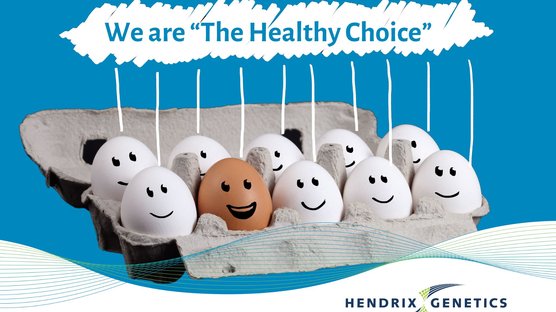
Published on Jan. 28, 2021
Eggs, an Eggcelent source of vitamin D
Already since the beginning of the COVID-19 outbreak it has been suggested that COVID-19 risk and severity is increased in Vitamin D deficient patients. Having sufficient levels of vitamin D plays a central role in immune and metabolic function and reduces the risk of certain community-acquired respiratory illnesses.
The review by Linda Benskin that was published in Frontiers in Public Health (2020) reported three patterns:
- Firstly, the innate immune system is impaired by vitamin D deficiency, which would predispose sufferers to viral infections such as COVID-19.
- Secondly, the groups who are at highest risk for severe COVID-19 match those who are at highest risk for severe vitamin D deficiency (these groups include the elderly, men, ethnic groups whose skin is naturally rich in melanin (if living outside the tropics), those who avoid sun exposure for cultural and health reasons, those who live in institutions and/or those who suffer with hypertension, cardiovascular disease, or diabetes).
- Thirdly, the pattern of geographical spread of COVID-19 reflects higher population vitamin D deficiency as throughout the world, COVID-19 fatality rates parallel vitamin D deficiency rates.
That research to investigate the link between vitamin D and COVID-19 is a trending topic is shown by the statistics from google scholar. A simple search after COVID-19 and vitamin D, since 2020 already delivers over 16.000 hits.
Eggs are one of the few natural sources of vitamin D, eggs come at a low cost and have other nutritional benefits besides being a good source of vitamin D (1 egg delivers about 8% of the recommended daily intake of vitamin D). Below we are highlighting an article on Vitamin D coming from the International Egg Commission website.
What Is Vitamin D?
Vitamin D is a nutrient essential for bone development, skeletal health, healthy muscles and regulating the immune system, yet it is estimated that 1 in 8 people worldwide have a vitamin D deficiency or insufficiency [1]. There are lots of reasons to ensure you reach the recommended daily intake of this vital nutrient, and as one of the few natural food sources of Vitamin D, eggs can help you do it.
Vitamin D is an essential nutrient with several important functions. Also known as the ‘sunshine vitamin’, vitamin D is produced in your skin in response to sunlight and is also naturally produced in a small number of foods, including eggs.
Good Sources of Vitamin D
The best source of vitamin D is sunlight. However, enjoying foods like eggs, which naturally contain vitamin D, as part of a healthy balanced diet can support you to meet your daily vitamin D requirements.
Vitamin D is only found in a small number of foods including:
- Egg yolks
- Oily fish
- Red meat
- Liver
- Mushrooms
Research has found that an average serving of 2 eggs contains 8.2mcg of vitamin D, a substantial portion of the recommended dietary intake of vitamin D [2], making them a great addition to the diet to support the intake of adequate levels of this vital vitamin.
Why is Vitamin D important?
One of the most important functions of vitamin D is the regulation of the amount of calcium and phosphate absorbed by the body, contributing to normal growth and development in children and maintaining our bone, teeth and muscle health as we age [3]. Vitamin D also supports the normal function of the immune system, which is the body’s first line of defense against infection and disease [4].
In addition to these primary benefits, research suggests that vitamin D may also play a role in fighting disease reducing depression and protecting against some cancers [5]. Research published in the American Journal of Clinical Nutrition suggests that vitamin D may play a role in helping to reduce the chance of developing flu [6]. While further research suggests vitamin D may play an important role in regulating mood, with one study finding that people with depression who received vitamin D supplements noticed an improvement in their symptoms [7].
Vitamin D deficiency
Vitamin D is essential to bone health, and prolonged deficiencies can have a detrimental impact on the bone health of both children and adults alike, while also impacting the function of the immune system.
Without enough vitamin D, the body can only absorb 10% to 15% of dietary calcium, but when adequate levels of vitamin D are present, this figure can more than double to 30 to 40% [8]. A lack of vitamin D in children causes rickets, while in adults it causes osteomalacia [9]. Furthermore, research suggests that vitamin D deficiency may also been linked to increased risk of cardiovascular events [10] and the development of multiple sclerosis [11], rheumatoid arthritis [12] and other autoimmune conditions [13].
Although vitamin D is commonly called the ‘sunshine vitamin’, in recent years studies have found that even those in sunny climates can have insufficient levels of vitamin D. Changing lifestyle factors, including spending more time indoors, sun avoidance and protection to reduce the likelihood of developing skin cancers, and pollution levels can all impact the level of vitamin D the body is able to synthesise [14]. Therefore, the consumption of foods which naturally contain vitamin D, such as eggs can support the intake of adequate vitamin levels.

a true vitamin D bomb: buttered toast with smoked salmon and poached eggs (photo by John Baker)



